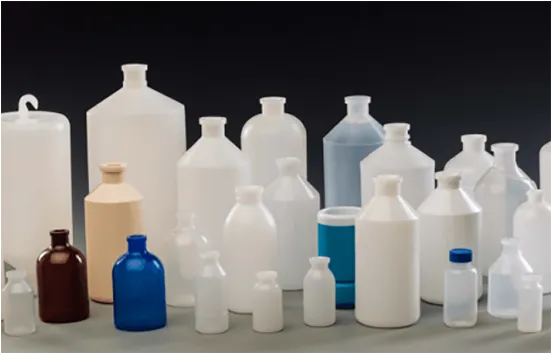
-
 Afrikaans
Afrikaans -
 Albanian
Albanian -
 Amharic
Amharic -
 Arabic
Arabic -
 Armenian
Armenian -
 Azerbaijani
Azerbaijani -
 Basque
Basque -
 Belarusian
Belarusian -
 Bengali
Bengali -
 Bosnian
Bosnian -
 Bulgarian
Bulgarian -
 Catalan
Catalan -
 Cebuano
Cebuano -
 Corsican
Corsican -
 Croatian
Croatian -
 Czech
Czech -
 Danish
Danish -
 Dutch
Dutch -
 English
English -
 Esperanto
Esperanto -
 Estonian
Estonian -
 Finnish
Finnish -
 French
French -
 Frisian
Frisian -
 Galician
Galician -
 Georgian
Georgian -
 German
German -
 Greek
Greek -
 Gujarati
Gujarati -
 Haitian Creole
Haitian Creole -
 hausa
hausa -
 hawaiian
hawaiian -
 Hebrew
Hebrew -
 Hindi
Hindi -
 Miao
Miao -
 Hungarian
Hungarian -
 Icelandic
Icelandic -
 igbo
igbo -
 Indonesian
Indonesian -
 irish
irish -
 Italian
Italian -
 Japanese
Japanese -
 Javanese
Javanese -
 Kannada
Kannada -
 kazakh
kazakh -
 Khmer
Khmer -
 Rwandese
Rwandese -
 Korean
Korean -
 Kurdish
Kurdish -
 Kyrgyz
Kyrgyz -
 Lao
Lao -
 Latin
Latin -
 Latvian
Latvian -
 Lithuanian
Lithuanian -
 Luxembourgish
Luxembourgish -
 Macedonian
Macedonian -
 Malgashi
Malgashi -
 Malay
Malay -
 Malayalam
Malayalam -
 Maltese
Maltese -
 Maori
Maori -
 Marathi
Marathi -
 Mongolian
Mongolian -
 Myanmar
Myanmar -
 Nepali
Nepali -
 Norwegian
Norwegian -
 Norwegian
Norwegian -
 Occitan
Occitan -
 Pashto
Pashto -
 Persian
Persian -
 Polish
Polish -
 Portuguese
Portuguese -
 Punjabi
Punjabi -
 Romanian
Romanian -
 Russian
Russian -
 Samoan
Samoan -
 Scottish Gaelic
Scottish Gaelic -
 Serbian
Serbian -
 Sesotho
Sesotho -
 Shona
Shona -
 Sindhi
Sindhi -
 Sinhala
Sinhala -
 Slovak
Slovak -
 Slovenian
Slovenian -
 Somali
Somali -
 Spanish
Spanish -
 Sundanese
Sundanese -
 Swahili
Swahili -
 Swedish
Swedish -
 Tagalog
Tagalog -
 Tajik
Tajik -
 Tamil
Tamil -
 Tatar
Tatar -
 Telugu
Telugu -
 Thai
Thai -
 Turkish
Turkish -
 Turkmen
Turkmen -
 Ukrainian
Ukrainian -
 Urdu
Urdu -
 Uighur
Uighur -
 Uzbek
Uzbek -
 Vietnamese
Vietnamese -
 Welsh
Welsh -
 Bantu
Bantu -
 Yiddish
Yiddish -
 Yoruba
Yoruba -
 Zulu
Zulu
injection moulding bottles
Injection Moulding Bottles An Overview of Technology and Applications
Injection moulding has revolutionized the production of plastic products, particularly in the manufacturing of bottles. This process involves injecting molten plastic into a mould, allowing for the creation of intricate shapes and designs with high precision. As a widely used method in the packaging industry, injection moulding offers numerous advantages, making it the preferred choice for producing bottles for various applications.
Injection Moulding Bottles An Overview of Technology and Applications
The versatility of injection moulding allows for the use of various types of plastics, including polyethylene (PE), polypropylene (PP), and polyethylene terephthalate (PET). Each type of plastic offers different properties, such as strength, flexibility, and barrier capabilities, enabling manufacturers to tailor the bottles to their specific needs. For example, PET bottles are widely used in beverage applications due to their excellent barrier properties, making them ideal for storing carbonated drinks without the risk of gas leakage.
injection moulding bottles

Design flexibility is another crucial aspect of injection moulding that contributes to its popularity in bottle production. The technology allows for intricate designs, including contoured shapes, textured surfaces, and specialized closures. This design capability not only enhances the aesthetic appeal of bottles but also adds functionality, such as improved grip or ease of pouring. Additionally, manufacturers can incorporate features like resealable caps or easy-pour spouts directly into the moulding process, further attracting consumer interest.
Sustainability is increasingly becoming a vital consideration in the manufacturing of plastic bottles, and injection moulding plays a significant role in this aspect. The technology can incorporate recycled plastics into the production process, reducing the reliance on virgin materials and minimizing environmental impact. Brands are now focusing on producing bottles that are not only recyclable but also made from recycled content, appealing to the eco-conscious consumer. Moreover, injection moulding enables the production of lightweight bottles, which reduces material usage and lowers transportation costs.
However, there are challenges associated with injection moulding that manufacturers must manage. The initial costs for designing and producing the moulds can be significant, particularly for complex designs. Additionally, while the process is efficient for large runs, it may not be as cost-effective for smaller production volumes. To tackle these challenges, many manufacturers are increasingly adopting innovative technologies, such as 3D printing and additive manufacturing, for prototyping and low-volume production, streamlining the overall manufacturing process.
In conclusion, injection moulding remains a cornerstone of bottle production in the plastics industry, offering efficiency, design flexibility, and sustainability. As market demands evolve and the emphasis on eco-friendliness continues to grow, it is essential for manufacturers to adapt their processes and materials accordingly. The future of injection moulding bottles looks promising, with advancements in technology paving the way for more innovative and sustainable solutions in packaging. Whether for beverages, cosmetics, or pharmaceuticals, injection moulded bottles are set to meet the ever-changing needs of consumers and industries alike.
-
ScienceLabSupplies Premium Small Medicine Bottles & Lab EquipmentNewsApr.29,2025
-
Empty Pill Containers Durable, Leak-Proof & Portable Pill StorageNewsApr.29,2025
-
Petri Dishes Key Uses in Lab & Microbiology Experiments Sterile & DurableNewsApr.29,2025
-
Premium Metal Dropper Bottles - 50ml & 250ml SizesNewsApr.28,2025
-
Small Liquid Medicine Containers Leak-Proof & Durable DesignNewsApr.28,2025
-
Secure Medication Travel Container TSA Approved, Compact & Leak-ProofNewsApr.28,2025






















